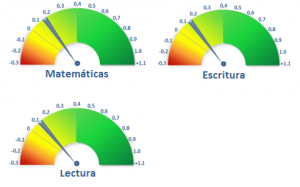Implementing institution: Magic Breakfast
Country: United Kingdom
Source: Education Endowment Foundation
Execution period: 2003 - in progress
Plataforma de Prácticas Efectivas:
Improve student performance by providing a healthy breakfast.
A food distribution program and counselling for schools.
Children in grade 2 have increased their scores by 0.149 SD in math, 0.138 in writing, and 0.104 in reading.
Magic Breakfast is a food distribution and counselling program for public schools to provide free, universal, healthy breakfasts to their students. The purpose is simple: No child too hungry to learn. The initiative is the product of the work of Carmel McConnell, who in 2003 created the NGO Magic Breakfast, targeting the children most vulnerable in terms of nutrition. Then, the intervention was extended to all children without discrimination, thanks to the sponsorship of large organizations such as Amazon and the Bank of America Merill Lynch.
The hypothesis that sustains Magic Breakfast is that good nutrition (both in quantity and quality) allows students to have good health, which in turn results in an increase in their proactive behaviour in classes (concentration, reflection, participation in activities, etc.). Therefore, the program was designed to provide all students with both the nutrients necessary for their physical as well as their mental development.
In particular, the NGO Magic Breakfast provides free food to schools (juices, bread, cereals) as well as an initial capital of £300 for the purchase of dairy products. It advises them in the organization of the “clubs” (the pre-class breakfasts), and accompanies them in their search for self-sustainability (generation of funds, inter-organizational alliances, etc.).
In England, elementary and secondary school enrolment covers almost the entire school-age population (99.85% and 98.28% respectively by 2014). Net participation rates have been growing since 2006, especially at the secondary level (+6 percentage points). However, the OECD’s PISA survey has highlighted, for example, levels of mathematical understanding among part of the 15-year-old population, briefly above the average for advanced countries (492 vs. 490 respectively). This means that there are countries that achieve better performance (Finland, Australia, Austria among others), still leaving room for progress for England. Within the framework of human capital theories, health is one of the key performance variables of agents. So much so that the notion of healthy eating becomes a central component, seeking to improve individual capabilities.
Between 2014 and 2015, the Institute for Fiscal Studies evaluated the effectiveness of the Magic Breakfast program in increasing students’ math and reading skills. The experimental study involved 8,600 children in grades 2 and 6. Only half received breakfasts. The comparison of their results at the end of the intervention in the national tests has shown a positive impact of breakfasts among grade 2 children, as they have increased their results in mathematics (0.149 SD), in writing (0.138) and in reading (0.104).
On the other hand, considering the grade 6 children, the results were also positive, but not statistically significant. Given the relatively low costs of the program (£11.9 per student per year), Magic Breakfast is a very timely innovation, which could be replicated in a simple manner.

Charts: Impact measured in standard deviations of the intervention group, compared to the control group.
Tags: